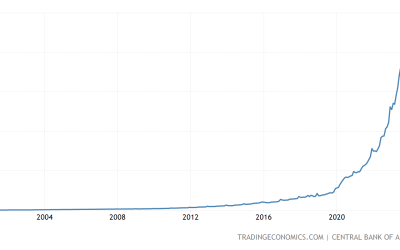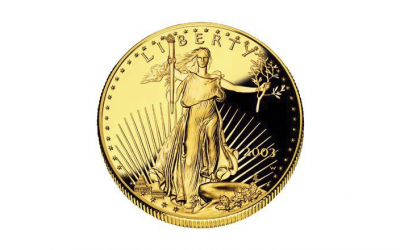If inflation is bad and if people realize it, why has it become almost a way of life in all countries? Even some of the richest countries suffer from this disease. The United States today is certainly the richest country in the world, with the highest standard of living. But when you travel in the United States, you will discover that there is constant talk about inflation and about the necessity to stop it. But they only talk; they do not act.
To give you some facts: after the First World War, Great Britain returned to the prewar gold parity of the pound. That is, it revalued the pound upward. This increased the purchasing power of every worker’s wages. In an unhampered market the nominal money wage would have fallen to compensate for this and the workers’ real wage would not have suffered. We do not have time here to discuss the reasons for this. But the unions in Great Britain were unwilling to accept an adjustment of money wage rates downward as the purchasing power of the monetary unit rose. Therefore real wages were raised considerably by this monetary measure. This was a serious catastrophe for England, because Great Britain is a predominantly industrial country that has to import its raw materials, half-finished goods, and food stuffs in order to live, and has to export manufactured goods to pay for these imports. With the rise in the international value of the pound, the price of British goods rose on foreign markets and sales and exports declined. Great Britain had, in effect, priced itself out of the world market.
The unions could not be defeated. You know the power of a union today. It has the right, practically the privilege, to resort to violence. And a union order is, therefore, let us say, not less important than a government decree. The government decree is an order for the enforcement of which the enforcement apparatus of the government-the police-is ready. You must obey the government decree, otherwise you will have difficulties with the police.
Unfortunately, we have now, in almost all countries all over the world, a second power that is in a position to exercise force: the labor unions. The labor unions determine wages and then strike to enforce them in the same way in which the government might decree a minimum wage rate. I will not discuss the union question now; I shall deal with it later. I only want to establish that it is the union policy to raise wage rates above the level they would have on an unhampered market. As a result a considerable part of the potential labor force can be employed only by people or industries that are prepared to suffer losses. And, since businesses are not able to keep on suffering losses, they close their doors and people become unemployed. The setting of wage rates above the level they would have on the unhampered market always results in the unemployment of a considerable part of the potential labor force.
In Great Britain, the result of high wage rates enforced by the labor unions was lasting unemployment, prolonged year after year. Millions of workers were unemployed, production figures dropped. Even experts were perplexed. In this situation the British government made a move which it considered an indispensable, emergency measure: it devalued its currency.
The result was that the purchasing power of the money wages, upon which the unions had insisted, was no longer the same. The real wages, the commodity wages, were reduced. Now the worker could not buy as much as he had been able to buy before, even though the nominal wage rates remained the same. In this way, it was thought, real wage rates would return to free market levels and unemployment would disappear.
This measure–devaluation–was adopted by various other countries, by France, the Netherlands, and Belgium. One country even resorted twice to this measure within a period of one year and a half. That country was Czechoslovakia. It was a surreptitious method, let us say, to thwart the power of the unions. You could not call it a real success, however.
After a few years, the people, the workers, even the unions, began to understand what was going on. They came to realize that currency devaluation had reduced their real wages. The unions had the power to oppose this. In many countries they inserted a clause into wage contracts providing that money wages must go up automatically with an increase in prices. This is called indexing. The unions became index conscious. So, this method of reducing unemployment that the government of Great Britain started in 1931–which was later adopted by almost all important governments–this method of “solving unemployment” no longer works today.
This article is serialized from Economic Policy: Thoughts for Today and Tomorrow, a book based on six lectures delivered in Buenos Aires in 1959 on Capitalism, Socialism, Interventionism, Inflation, Foreign Investment, and Politics and Ideas by the great 20th century economist who was too good to receive a Noble Prize: Ludwig von Mises (1881-1973). Copyright 1995 by Bettina Bien Greaves. All rights reserved.




